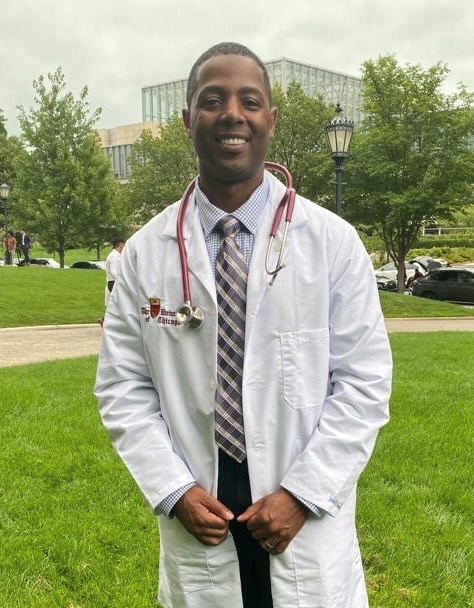
Tell us a little about your background before you came to Drexel.
I was a math and physics teacher, a track and field coach, and for a few years I was the science department chairperson at Blair Academy.
Why did you decide to enroll in a post-baccalaureate program? And why did you feel the Evening Pre-Medical Program (PMED) was a good fit for you?
When I decided to apply to medical school, it was at a time when my partner was already enrolled in school full-time. I needed to work and take classes. We moved to Philadelphia for my partner's program and the PMED program at Drexel made the most sense for me both in terms of cost and schedule. I could go to work and go to class.
Since graduating from the PMED program, what did you do to continue building your medical school application?
I spent a year preparing my application to medical school and also studying for the MCAT. I used several resources for MCAT prep including those provided by PMED.
What influenced you to want to become a doctor?
I am very interested in social justice and advocating for underserved communities. This has always been my main interest, and I believe medicine allows you in interface with people at times when they are the most vulnerable and most in need of support. I love working with people and think I have the skills to make difference in the lives of my patients.
What has allowed you to achieve your current accomplishments?
Having a lot of patience with myself. The work is challenging and at times can be very overwhelming. That said, I remind myself that I have done this before and that I can do it again.
As one of our top students, what advice would you give to current and future PMED students?
Your exam scores should always be placed in right context, and for me, I use my results to determine how well my current learning/study strategies are working. It can be hard, but I try not to associate those type of metrics with who I am as a person or as a measure of how good a doctor I can be. If I did well on an exam, then I took that as feedback that my approach and preparation is working. Maybe I refine it a bit, but for the most part, I focus on test scores as feedback on my workflow and not on who am I or what I am capable of. This is a long road, and as much as you can frame each step as an opportunity for growth, and not just as something to get through, then it tends to feel more sustainable. And don’t be an afraid to take breaks and give yourself grace.
Where are you now?
I am currently a first year at the Pritzker School of Medicine at the University of Chicago.